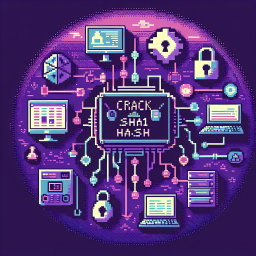
Crack SHA1 Hash
Can you crack this SHA1 hash?
A single SHA1 hash stands between you and victory. This cryptographic puzzle challenges you to reverse-engineer the original plaintext from its hashed form. Will you use brute force, rainbow tables, or clever wordlist attacks? The clock is ticking, and the hash is waiting to be broken.
1
Flags
5
Points
96%
Success Rate
Start Your Challenge
~1-2 min setup
Dedicated server
Private instance
Industry standard
Stuck? Get the Solution
Stop wasting hours. Get the official step-by-step walkthrough and learn the right techniques.
All solutions
Learning Mode
Unlimited hints
Archived labs
Ready to hack this lab?
Create a free account to start your own dedicated server, submit flags, and earn points on the leaderboard.
Start Hacking Free